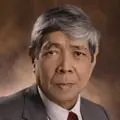As multiword modifiers, participial phrases enjoy flexibility in positioning themselves in a sentence. However, they do their job best when placed as near as possible to the noun or pronoun they are meant to modify: "Tired after a long day's work, the mechanic fell asleep in the bus." They work equally well as interrupters in a sentence: "The mechanic, tired after a long day's work, fell asleep in the bus." Either way, the sentence functions without a hitch because "tired after a long day's work" is positioned right beside the noun "mechanic."
Take note though that when placed at end-sentence, that same participial phrase won't work properly: "The mechanic fell asleep in the bus, tired after a long day's work." This time, that participial phrase becomes a dangler, absurdly modifying the noun "bus."
Continue reading with one of these options:
Ad-free access
P 80 per month
(billed annually at P 960)
- Unlimited ad-free access to website articles
- Limited offer: Subscribe today and get digital edition access for free (accessible with up to 3 devices)


